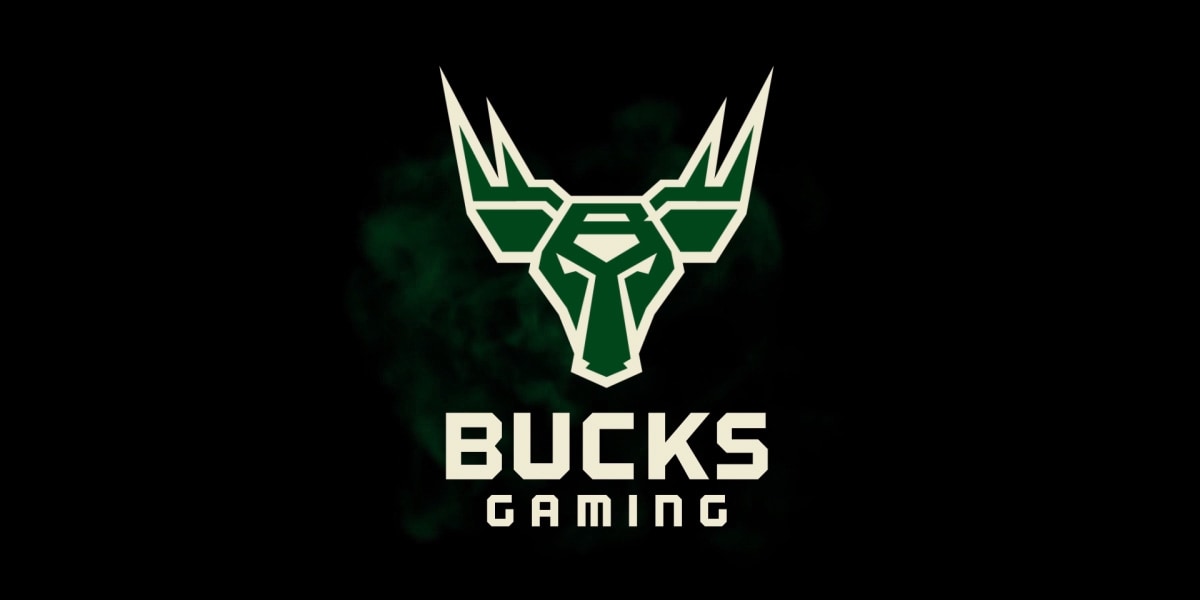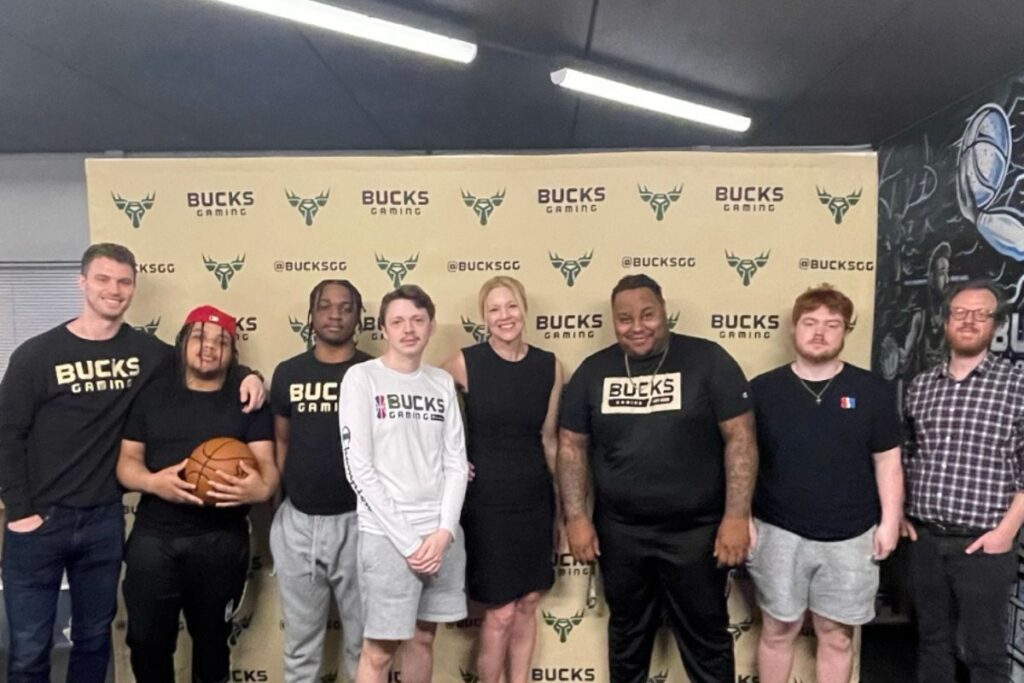KCHP Partners With Bucks Gaming and Lead Researchers to Boost Performance

What if paying close attention to people’s stress—what triggers it and how they cope—could significantly improve how they live, work, and play?
The Kacmarcik Center for Human Performance (KCHP) is paving the way by taking an in-depth look at the world of esports in the hopes of discovering valuable information about psychological well-being that could translate onto the physical basketball court or, eventually, the company conference room.
Working with an international team of elite esport researchers in Australia and England, as well as Bucks Gaming—the esport affiliate team of the Milwaukee Bucks—the Kacmarcik Center for Human Performance is hoping to use the “Level UP” program to find actionable ways to reduce stress and improve performance.
Gaming Today
When most people think of gaming, they think of their kids playing Call of Duty, Fortnite, or Minecraft. But esports is an entirely different kind of gaming.
According to Innovation & Tech Today, today’s gaming industry has reached an unprecedented peak. The variety of options available—not to mention the increased access to ever-improving technology—is awe-inspiring. People can play from phones, PCs, consoles, or pretty much anywhere.
But esport professionals are in a league entirely on their own. While gaming encompasses any video game on any platform, esports has elevated it to an art form. The competition in this realm is extreme, with paid professionals facing off at premier levels to win millions of dollars.
Bucks gaming is the esport affiliate of the Milwaukee Bucks. It is comprised of five professional gamers who earn a salary playing NBA 2K for the program.
“These athletes come from all types of backgrounds and are as young as 18 and as old as 35,” said Bucks Gaming esports manager Patrick Glogovsky. “Bucks Gaming is one of 24 teams in the NBA 2K League, 22 of which are affiliated with an NBA team.”
The season runs from March to August and ends with playoffs and championship finals.
“Our athletes play around 40 games throughout the season and are almost always practicing on their off days,” Glogovsky said.

How the Level UP Program Works
As part of Level UP, Bucks Gaming players use an app to report their physical and mental health—including pulse rates, stress, and performance levels—at various points during the day or week.
“Additionally, they participate in bi-weekly coaching sessions with a sports psychologist in hopes of analyzing this data and seeing how they can improve upon it,” Glogovsky said.
Dr. Dylan Poulus, lecturer in psychology and esports psychology research at Southern Cross University in Australia, and Dr. Phil Birch, senior lecturer in sport and exercise psychology at the University of Chichester, England, are leading the research.
Their goal is to identify stress factors for the gamers before it impacts their mental and physical performance.
“This platform monitors players’ psychological stress load, providing players, coaches, and other support staff with the information they need to make preventative decisions that will support players’ psychological well-being and performance,” Poulus said.
The team hopes to reduce the players’ stress while increasing their general well-being and performance ability. This is incredibly crucial for esport gaming, which is played on such a mental level that one stressful day can completely derail your game.
“We want our players to know when this phenomenon is happening and how they can look to control it and harness their mental strength to perform at the highest level, without letting outside factors affect them,” Glogovsky said.
“By doing this, the team at KHPC can develop individualized support interventions to enhance player performance and health,” Birch added.
Why It’s Important
“Professional esports athletes train and think like any other elite athlete, so it is imperative to provide support systems that help them excel in their performance domain,” Birch said.
But is this very different than many other aspects of living and working? Perhaps not! In fact, esports is just the beginning. If identifying stressors in this sphere is useful, there are no limits to where similar programs could be implemented.
“It’s the starting point to try out this concept that could be applied in other sports or at a company,” said Michael Sapiro, managing director of business development for the Kacmarcik Center for Human Performance.
Sapiro said he hopes the program allows the team to understand key stressors that hinder performance in the areas of knowledge, motivation, and organization.
For now, however, all eyes are on the professional esport gamers and how they progress in the program this summer.
“My hope is that this program will help eliminate the stresses that come with being a professional athlete, living a digitally visible life, and being a target for criticism, either from fans, their opponents, or even themselves,” Glogovsky said. “As a result, I’m hoping that this results in our team not beating themselves by letting the noise and stress get to them and become unable to perform basic in-game mechanics like hitting open shots or panicking when the game starts to slip away.”
In the end, happiness is as much a goal as anything else.
“My goal through researching and consulting in esports is to help players optimize their relationship with stress, avoid burnout, perform better in-game, and live happy lives,” Poulus said.
Happiness and well-being due to optimal stress management is an end goal the Kacmarcik Center for Human Performance would like to see extended to people in various walks of life—both on and off the court.
“We strive to help every person achieve their highest potential,” Sapiro said. “This program is not only going to help Bucks Gaming be better players but also better people. Whether it be competitive sports or a fast-paced professional environment, we are seeing significant demand for solutions like ‘Level UP.’”
